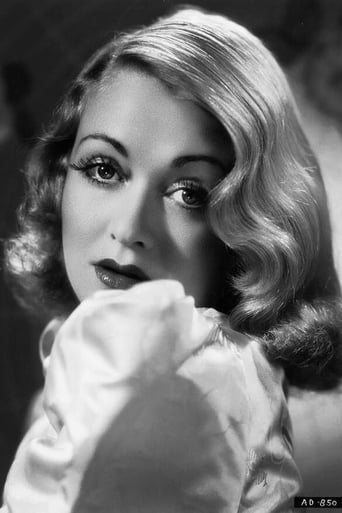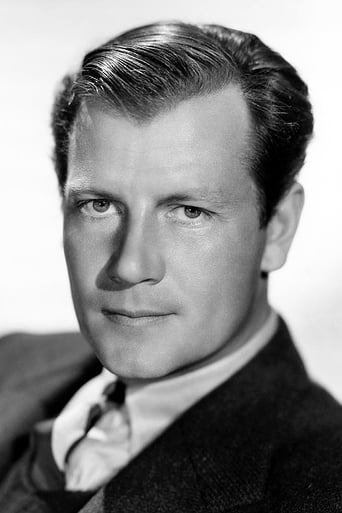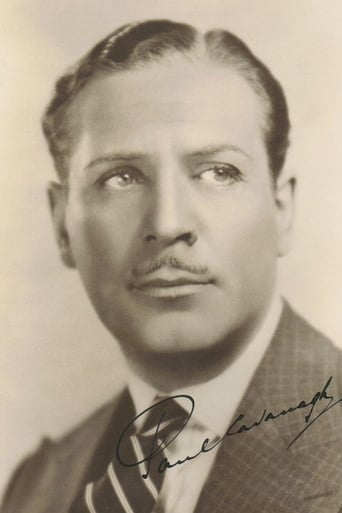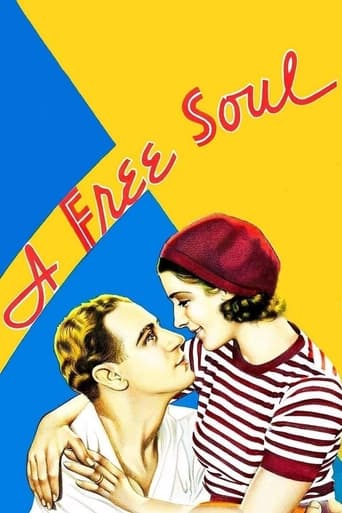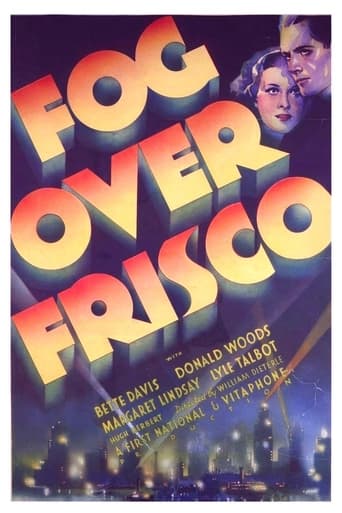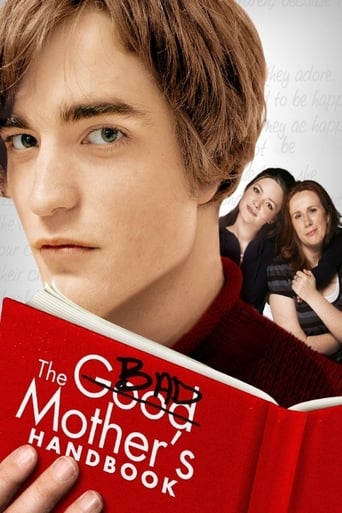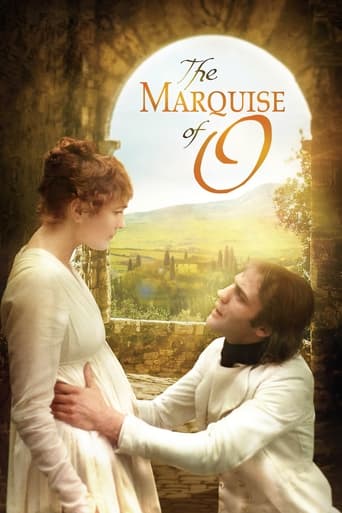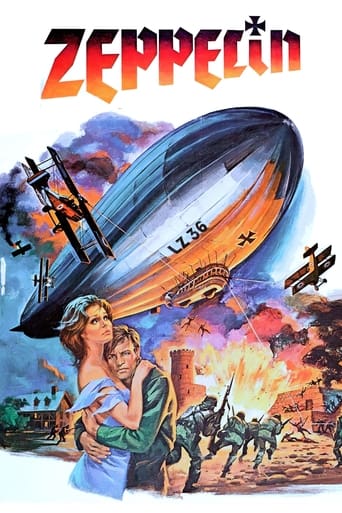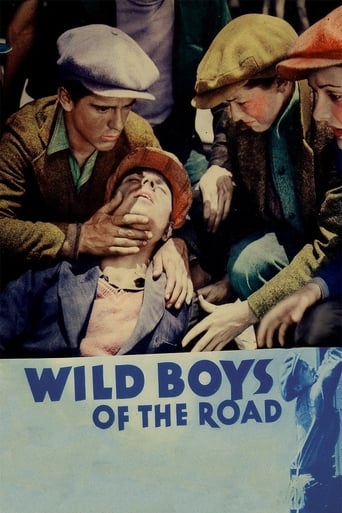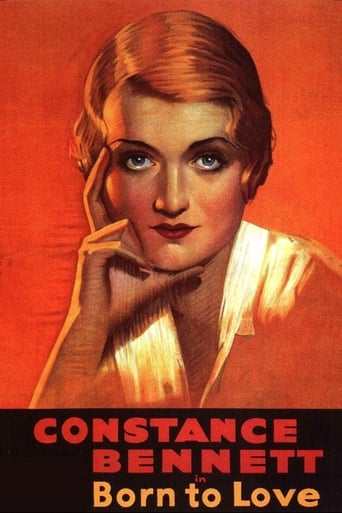
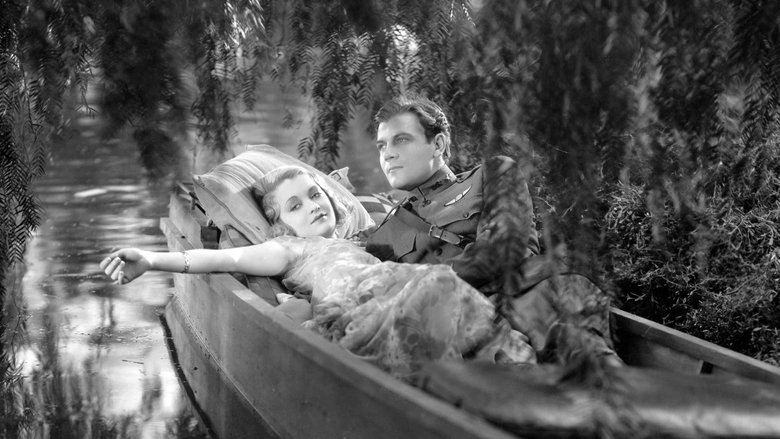
Born to Love (1931)
A pregnant American nurse living in London during WWI, believing her soldier-fiance has been killed in France, marries a wealthy aristocrat so her child will have a father.
Watch Trailer
Cast
Similar titles
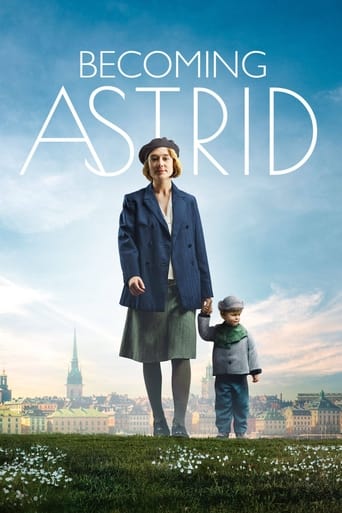
Reviews
It is a performances centric movie
This film is so real. It treats its characters with so much care and sensitivity.
Although I seem to have had higher expectations than I thought, the movie is super entertaining.
I enjoyed watching this film and would recommend other to give it a try , (as I am) but this movie, although enjoyable to watch due to the better than average acting fails to add anything new to its storyline that is all too familiar to these types of movies.
During WWI, an American nurse, Doris (Constance Bennett) meets up with an American serviceman, Barry (Joel McCrea) and soon the pair are in love. Since this is a pre-code picture*, the pair apparently slept together before he shipped out for France...with the promise to marry her when he returned. However, she soon receives word that Barry has been killed...and she is pregnant. The ardent suitor, Sir Wilfred, still wants to marry her despite this and so she agrees. No one is apparently the wiser that the baby was not his other than Sir Wilfred and his new bride...and things appear very happy. However, when Barry returns and it's obvious he was not killed in action but only injured, Doris has some tough choices...as does Sir Wilfred. Unfortunately, Sir Wilfred does NOT rise to the occasion. What exactly happens? Well, see the film and be prepared for a few surprises.What I appreciated about this film is that it took a somewhat familiar story idea and cast all sorts of unexpected events as well. The story is NOT one you'll be predicting long before things occur. Additionally, for a 1932 film the acting is quite nice. Well worth your time.*In films released after July, 1934, this story would have either not been filmed at all or would have been heavily edited due to the premarital sex in the plot. Such things were pretty much taboo in the post-code era...a time period during which Hollywood began making more wholesome and less sordid movies. And, while I love the pre-code films, as they are very entertaining, some of the films did get a bit too racy considering that there was no rating system and anyone could have been in the audiences to see topless girls in "Ben Hur" (1925), lechrous bosses who refused to keep their hands off the women at work ("Employees Entrance") and women who sleep their way to the top...and somehow remain there by the end of the story ("Red-Headed Woman"). I don't think this film really has anything offensive at all about in it...but a few pre-code films did seem to really push the envelope!
They don't make 'em like this anymore. But the weeper genre was popular with the ladies once upon a time, and Bennett led the pack of martyrs. Her suffering in Born to Love is all the sadder because it could have been so easily avoided if she had just answered her husband's questions frankly and fully. But not Bennett. Her evasiveness followed by her unforgivably cruel words turned this kindly man's love for her into hate. But still, she didn't deserve what she got.Variety's reviewer wrote of the plot, "Constance Bennett is ruined again and has another baby" and "How the women love it, that sobbing stuff." Bennett's hand-wringing and heavy emoting was criticized, but I thought her acting was exactly how her character would respond to the shocks the script writers threw at her. Regardless, Variety saw the film's box-office potential, "Bennett isn't much of an actress here but still drawing as ever because of this story." Only a year after this huge hit, the drawing power of Bennett and stories like Born to Love would lose favor with fickle moviegoers, and she and her producers were unable to keep her career from sliding downhill until Topper reinvented her as a sophisticated comedienne.This was Joel McCrea's first (of 4) teamings with Bennett as well as his first major role. He's wonderful to watch and Bennett's undying love for him is believable. Cavanaugh is excellent and manages to be sympathetic even while being cold-hearted and vengeful.
I really love Constance Bennett and Joel McCrea and their underrated talent and range, but this film was just one emotional blow after another to Bennett's character, Doris Kendall, a nurse in Great Britain during World War I, to the point where it got hard to continue watching. The film starts out on a rather fascinating note - Doris is practically hypnotized by the sight of a German dirigible in a rather strange "dogfight" with British planes over London. Down goes the dirigible in a pile of flames.Joel McCrea's character, Captain Barry Craig, pulls Doris out of danger and sparks begin to fly. At the same time, Doris is nursing an English nobleman (Paul Cavanagh as Sir Wilfred Drake) back to health from his war wounds and he has fallen in love with her. Captain Craig and Doris throw convention to the wind and spend one night together and consummate their relationship before he has to ship out to France. Then one tragedy after another ensues, some due to misunderstandings, some due to natural occurrences, and some due to divorce law in England as it stood in the early twentieth century in which one of the parties had to be the bad guy in order for divorce to occur with legally punitive measures taken against the party that is deemed to be "at fault".This movie may costar McCrea, but this is really Constance Bennett's film all the way. Frederick Kerr is particularly noteworthy as an older member of England's upper class that has a crusty exterior that hides a gooey center - he's quite sympathetic and kind to Doris. Louise Closser Hale plays his wife who also has a crusty exterior but has a heart of - well - crust. In spite of these differences in viewpoint these two older members of the cast play off one another quite well.Recommended, but not if you're looking to be cheered up.
I saw the last part of this on TCM; it was Joel McCrea day.It didn't really fit -- this is Constance Bennett's movie, 100%, and that's the problem. This has to be one of the worst performances of her career. Even making allowances for 1931, she is very histrionic and melodramatic, in all the worst, most silent-movie-cliché ways.Technically, Paul L. Stein's direction is fine (for 1931), but it appears from this he was not an "actor's director". Oddly, Ms. Bennett's next film, "The Common Law," re-teamed her with director Stein and costar McCrea. It is better; not memorable, but at least she isn't painfully bad in this one.
